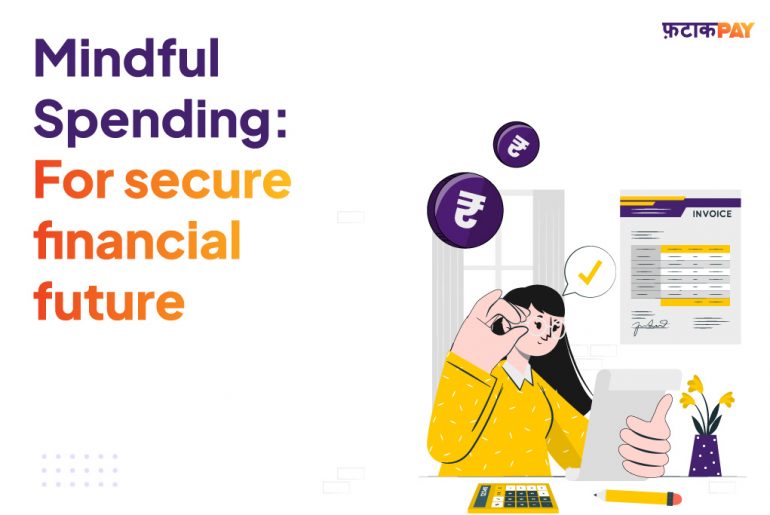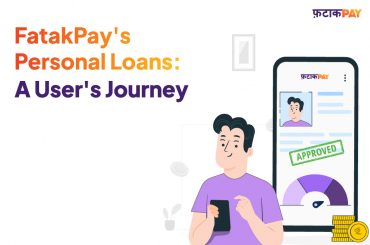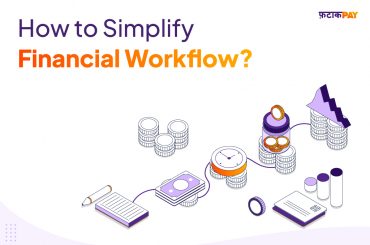You must always be mindful of your spending, especially if you wish to save for future financial wellness. You will refill the oil in the vehicle only when it’s required. Then why spend the money when it is not needed? When and where you spend your money affects your future savings; mindful spending can effortlessly save for emergency funds.
This blog topic will explain why mindful spending is essential and how you can make only required expenditures while avoiding unnecessary expenses.
Understanding the difference between Needs and Wants
Spending can be derived from two factors: needs and wants. Need is something you require; for instance, when you are sick, you buy paracetamol because you need it. Whereas Want is when you wish to possess something you might or might not need.
Wanting to buy something is mainly derived from emotional factors, such as peer pressure or amusement; for example, you went to a market. You saw attractive shoes, and you already have shoes, but you bought them anyway because you find them attractive. Want can be, but not essentially, an unnecessary expense.
Financial Goals for Financial goals:
To decide when and where you should spend, you must set clear financial goals that Cultivate a mindful spending habit. A clear economic vision acts as a road map for achieving any goal, whether debt repayment, emergency fund creation, or house savings. It gives you a direction and a feeling of purpose, which enables you to prioritize your expenses according to your goals.
Financial goals offer a framework for allocating resources through careful planning and budgeting, encouraging discipline and motivation in daily financial decisions. In addition, objectives like creating an emergency fund improve long-term economic well-being, guarantee availability for unforeseen costs, and strengthen one’s financial capacity.
If somehow you run out of money, you can use FatakPay. It is one of the platforms that significantly helps you save money. You can take small instant credits from FatakPay and can use them for grocery shopping, electricity bill payments, or medical bills. You also get some discount when you pay via FatakPay. You can also opt for EMI loans and Personal accidental insurance.
Mindful spending is easier with a Budget:
To reach a location, you need a path to walk on. So, to achieve your financial goals, you need a budget. You needs to be align your financial goals with your budget.
Remember to Keep careful records of all monetary transactions in an app or notepad. Save money automatically by selecting a specific account for periodic transfers to your savings account, and make saving money your top priority. Monitor how you use your credit cards to avoid running up high-interest debt.
Create an emergency fund to protect against unforeseen expenses and help you avoid using credit when things go tight. Regularly review and modify your budget in response to changing circumstances.
Finally, dedicate some time to financial education to deepen your grasp of personal money, allowing you to make wise choices and live sustainably within your means.
Frugal Living Tips
Developing frugal living habits can lead to a satisfying path of financial mindfulness. When purchasing, you should actively look for sales and discounts. Make it a habit to shop with a list; this will help you avoid making impulsive purchases of non-essential products.
Make comparing prices a priority by investigating several offline and online merchants to ensure you receive the most outstanding deal possible. Consider purchasing regularly used things in quantity to take advantage of bulk pricing.
Additionally, venture into thrift or second-hand shopping for furniture, clothing, and other stuff to locate high-quality products for just a little of the cost. By incorporating these frugal living strategies into your everyday practice, you may develop a more mindful and careful attitude to handling your finances.
Investing in Quality Over Quantity:
A gold necklace will definitely stick longer than a necklace made of plastic. If you keep buying plastic necklaces, that will cost you less, but you must accept them frequently and consider all the time you spend on plastic. One will be higher than the price of a one-time purchase of a genuine gold necklace.
Investing in high-quality products is always worth it, rather than investing in cheaper disposal alternatives. You may be spending a lot on a quality product, but it is money-saving in the long run. Quality products contribute to your mindful spending. Mindful spending encourages sustainable and ethical purchasing choices.
Setting Mindful Spending Challenges:
If you start a journey of conscious spending for a certain amount of time, like a month or a year, then it may be a very enlightening financial education experience. Consider taking on challenges like a No-Impulse-Buy Month or switching to a Cash-Only strategy to make your purchases more deliberate.
Spending with a purpose is always encouraged when financial decisions align with long-term goals. A comprehensive strategy incorporates reviewing purchases, auditing subscriptions every month, and assisting sustainable companies.
These thoughtful spending habits not only improve financial health but also foster a greater awareness of how our decisions affect our happiness and the welfare of society at large.
Conclusion:
We have reached the end of this blog topic and explored how you can practice mindful spending. With mindful spending, you will always be tension-free and never in a pinch during financial emergencies.
When you have to catch a train and you wake up early, you are always relaxed. Because you know that you are on time and can easily catch the train. The same relaxation you feel when you have financial freedom. With mindful spending, you can create a secure financial future without worrying about any financial emergency.
We have another blog on ‘ Financial Planning – secure your future‘ discussing how you can effortlessly create emergency funds and budget. You can refer to that for additional help.
Read our other blogs on:







